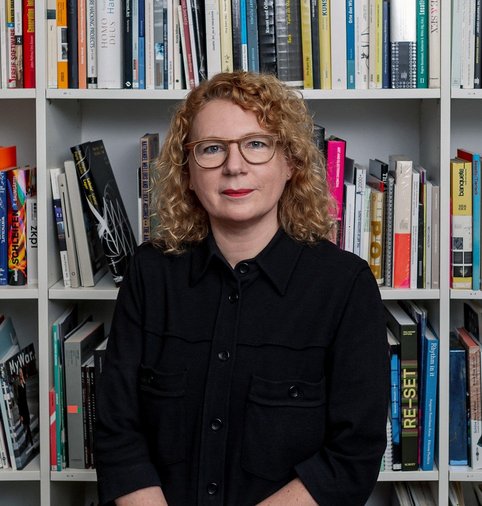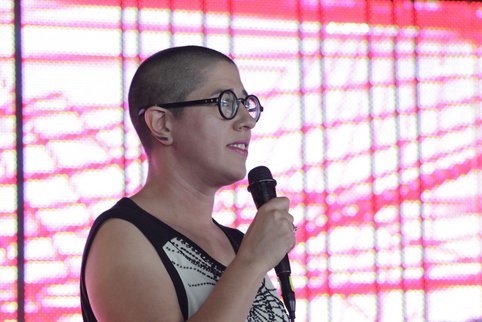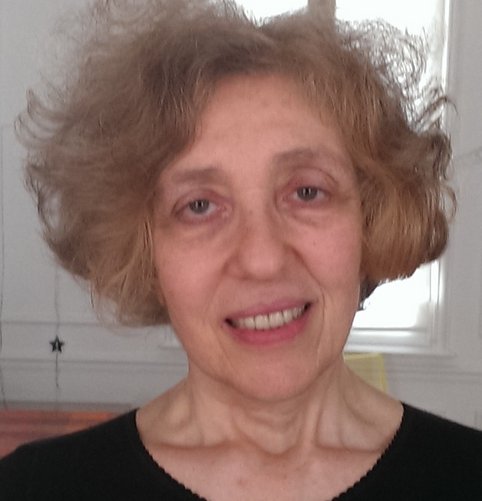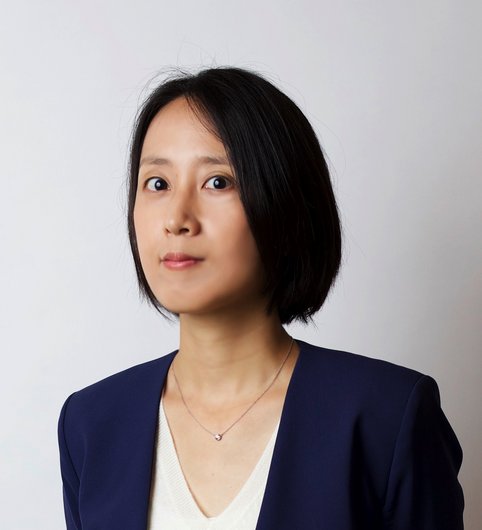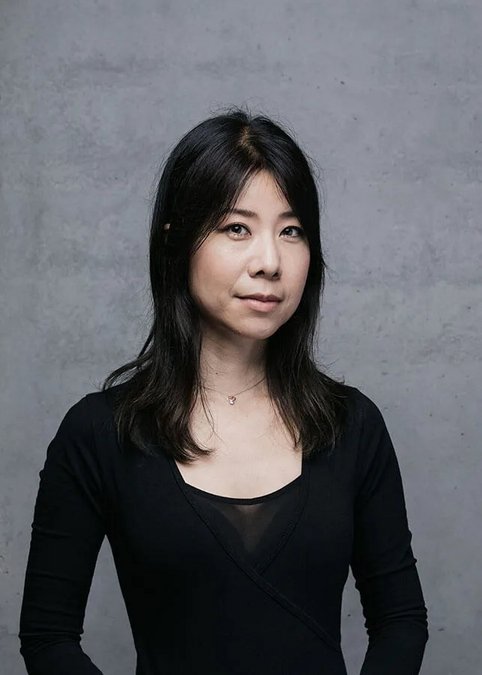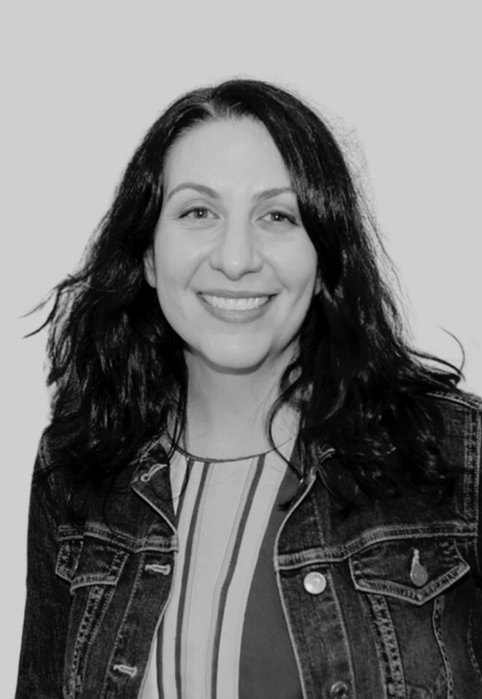The Art of Synthesis. 8. September 2023

The Art of Synthesis – Creative Collaborations Between Artistic Research, Technology, and Care
Interdisciplinary Workshop Promoting Women's Perspectives on the Transnational Arts and Posthumanities
Date
September 8, 2023
Time
9.30–13.00 / 16.00–19.00
(Break 13.00–16.00)
Katholische Privat-Universität Linz, Lecture Hall 1
Bethlehemstraße 20, 4020 Linz
Free admission!
Organisation
Ass.-Prof.in Dr.in Kerstin Borchhardt
Institut für Geschichte und Theorie der Kunst
About the Workshop
The experiments on new synergetic networks created through collaborations of diverse cultural techniques such as artistic practices, cutting-edge technologies, and political activism are common elements of various works of fine arts, science, and science fiction also questioning our traditional notions of order, knowledge production, and truth. Especially the art institution as an experimental space of creativity provides huge potentials to perform groundbreaking syntheses between various cultural technics and social scopes.
For example, recent innovations in the fields of artistic research and curatorial practises have coincided in the creation of new ecological networks. The convergence of biotechnology, AI, and art has sparked innovative research exploring the future of co-creation between machines and nature. And the utilization of artistic and musical methods in the biomedical domain has given way for medical and healthcare purposes.
Such artistic syntheses provide huge potentials to rethink and recreate traditional ideas of bodies, technology, and the relationship of culture and nature also in terms of social and ecological stereotypes. But how do these synergetic experiments work? What is the special role of the arts to mediate between established cultural institutions such as science and politics? And which potentials do such synthesis provide to create new knowledge and overcome current social and ecological crisis?
In this workshop, we will elaborate these questions from various perspectives of innovative female artists, curators, and researchers providing a space for presentations, discussions, and creative exchange to give way for new networks of collaboration and cocreation.
The Workshop is part of the Ars Electronica Festival 2023.
Program
Morning Panel: Keynotes, Discussions, and Book Presentation (9.30–13.00)
- 9.30 Welcome and Introduction by Kerstin Borchhardt (Associate Professor, Katholische Privat-Universität Linz)
- 9.45 Sabine Himmelsbach (Director, House of Electronic Arts [HEK], Basel)
"Coding Care. Addressing Ecological Change and the Climate Crisis through Media Art" - 11.00 Yukiko Matsunaga (Associate Professor, University of Tokyo)
"Not just a Way of Expression: The Body Meets Music" - 12.00 María Antonia González Valerio (Professor/Artist, National Autonomous University of Mexico [UNAM], Mexico-City)
"What about Nature? Rethinking the Shape of Nature within a Particular City",
and Book Presentation "Through the Scope of Life: Art and (Bio)Technologies Philosophically Revisited" (Written with Polona Tratnik, Springer, 2023 [Link])
Evening Panel: Keynotes, Discussions, and Art Presentation (16.00–19.00)
- 16.00 Rahma Khazma (Researcher, Institut ACTE, Université Paris 1 Panthéon-Sorbonne, and EnsadLab Paris)
"Mutualism or Parasitism? Reflections on the Implications of Symbiotic Relations" - 17.00 Elena Soterakis (Director, BioBAT Art Space, New York)
"BioBAT Art Space - Creative Explorations in Biotechnology and Art" (online) - 18.00 Art Presentation of the Ars Electronica Futurelab Art Project "Sonosynthesis" (Yoko Shimizu and Ali Nikrang, 2022)
presented by Yoko Shimizu (Key Researcher/Artist, Ars Electronica Futurelab Linz)
Project Description "SonoSynthesis" (2022)
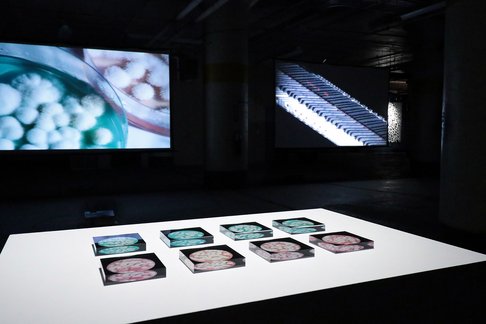
"In the new era of creative collaboration, can machines and nature co-create art and music? In the SonoSynthesis project, a team of researchers from the Ars Electronica Futurelab brings together AI, biology, and Deep Space technologies to develop an immersive audio and visual experience created through the interaction between artificial intelligence and biological entities. In the project, various microorganisms create biological patterns on a petri dish which is received by an AI Music composer to generate music that is then performed on the self-playing piano. In this event, an experimental music titled SonoSynthesis 24831633251 will be presented as an audio video installation."
(Yoko Shimizu)
About the Speakers
Since 2012, Sabine Himmelsbach, is director of HEK (House of Electronic Arts) in Basel. She was project manager for the Steirischer Herbst Festival in Graz. In 1999, she became exhibition director at the ZKM | Center for Art and Media in Karlsruhe and she was the artistic director of the Edith-Russ-House for Media Art in Oldenburg from 2005–2011. In 2022 she curated Earthbound – In Dialogue with Nature for the European Capital of Culture Esch-sur-Alzette in Luxembourg. Her writings and lectures encompass media art and digital culture.
María Antonia González Valerio, PhD in Philosophy, is a full professor at the Faculty of Philosophy and Literature at the National Autonomous University of Mexico directing the Seminar Arte+Ciencia, which brings together artists, academics, and scientists. She is a curator and leads Bios ex Machina. She is the proponent of a philosophy of nature within ontology-aesthetics. Several publications as: Through the Scope of Life: Art and (Bio)technologies Philosophically Revisited, Springer 2023.
Dr. Rahma Khazam is affiliated to Institut ACTE, Sorbonne Paris 1 and EnsadLab, Paris. Her research focuses on modernism, image theory, and contemporary speculative aesthetics. Publications include "Ikonische und spekulative Wende: Von Visualität zu Realität", in: Nach der ikonischen Wende. Actualität und Geschichte eines Paradigmas, Kadmos, 2021. She is the editor of Objets Vivants, a collection of philosophical essays exploring the frontiers between life and non-life (Mimésis, 2023).
Dr. Yukiko Matsunaga is a biomedical engineering scientist. Her research focuses on vascular tissue engineering to understand healthy and abnormal blood vessels aiming for regenerative medicine and drug discovery. She is also interested in the impact of incorporating art and design into the scientific research in the field of life sciences and healthcare. She was awarded The Young Scientists Prize from MEXT Japan in 2018.
Yoko Shimizu is a researcher and artist at Ars Electronica Futurelab with a background in biology and chemistry. She began her career as a creative director and consultant for corporations, and later founded her lab, where she developed innovative technologies and installations that combine science and art. Yoko works with companies, government agencies, museums, and universities around the world and is a speaker and lecturer at international events, conferences, and educational institutions.
Elena Soterakis serves as the Co-Founder and Executive Director of BioBAT Art Space (NY), a BioArt gallery situated within a biotech incubator. Soterakis is also a Director of Creative Productions at Beyond Earth, an international women-led artist collective. Her artistic practice delves into themes of environmental degradation and humanity's relationship with technology and nature. Her work has been shown at The Museum of Art and Design Atlanta, The Torrence Museum of Art, and the San Louise Obispo Museum of Art.
Funded by
Bischöflicher Fonds zur Förderung der Katholischen Privat-Universität Linz
Oberösterreichische Versicherung
Günter Rombold Privatstiftung
10.7.2023/RK

